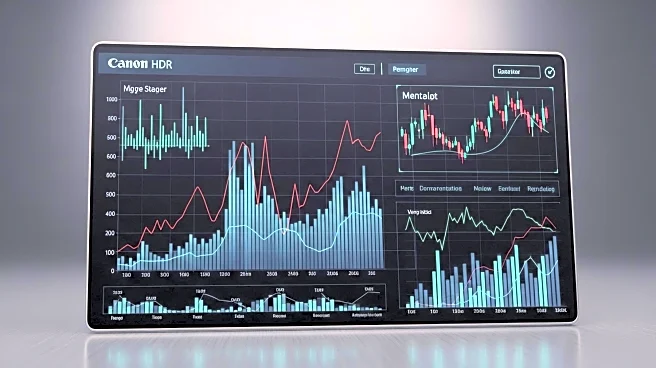What's Happening?
Revenue managers in the hospitality industry are increasingly adopting strategies that focus on dynamic pricing and upsell frameworks to maximize revenue opportunities. The approach involves setting a minimum acceptable revenue floor to protect against market fluctuations while allowing for unlimited upside potential. This strategy includes leveraging early demand signals, using base group business to cover fixed costs, and implementing dynamic pricing that adjusts with demand. Additionally, upsell frameworks are being utilized to turn every booking into a revenue opportunity, with packages and experiences that guests are willing to pay more for due to perceived value. The emphasis is on creating a safety net to prevent revenue loss while capitalizing on market opportunities.
Why It's Important?
The adoption of dynamic pricing and upsell strategies is crucial for the hospitality industry, especially as markets become increasingly volatile. By protecting the downside and allowing for unlimited upside, hotels can ensure stable revenue streams while remaining competitive. This approach not only helps in mitigating risks associated with sudden market shifts but also enables businesses to capitalize on high-demand periods. The use of data and AI to spot demand spikes further enhances the ability to optimize pricing strategies. As a result, hotels that implement these strategies are better positioned to thrive in a rapidly changing market environment, potentially leading to increased profitability and market share.
What's Next?
As the hospitality industry continues to evolve, revenue managers are likely to further refine their strategies to enhance flexibility and responsiveness to market changes. The integration of advanced data analytics and AI tools will play a significant role in identifying demand patterns and optimizing pricing models. Additionally, there may be increased collaboration between marketing, sales, and revenue management teams to create comprehensive strategies that align with business goals. Stakeholders in the industry will need to remain agile and open to innovation to maintain a competitive edge and maximize revenue potential.
Beyond the Headlines
The shift towards dynamic pricing and upsell frameworks reflects broader trends in the hospitality industry, where data-driven decision-making is becoming increasingly important. This approach not only impacts revenue management but also influences customer experience, as personalized and value-driven offerings become more prevalent. Ethical considerations around pricing transparency and fairness may arise, prompting discussions on how to balance profitability with customer satisfaction. Long-term, these strategies could lead to a more resilient and adaptive industry capable of weathering economic uncertainties.









